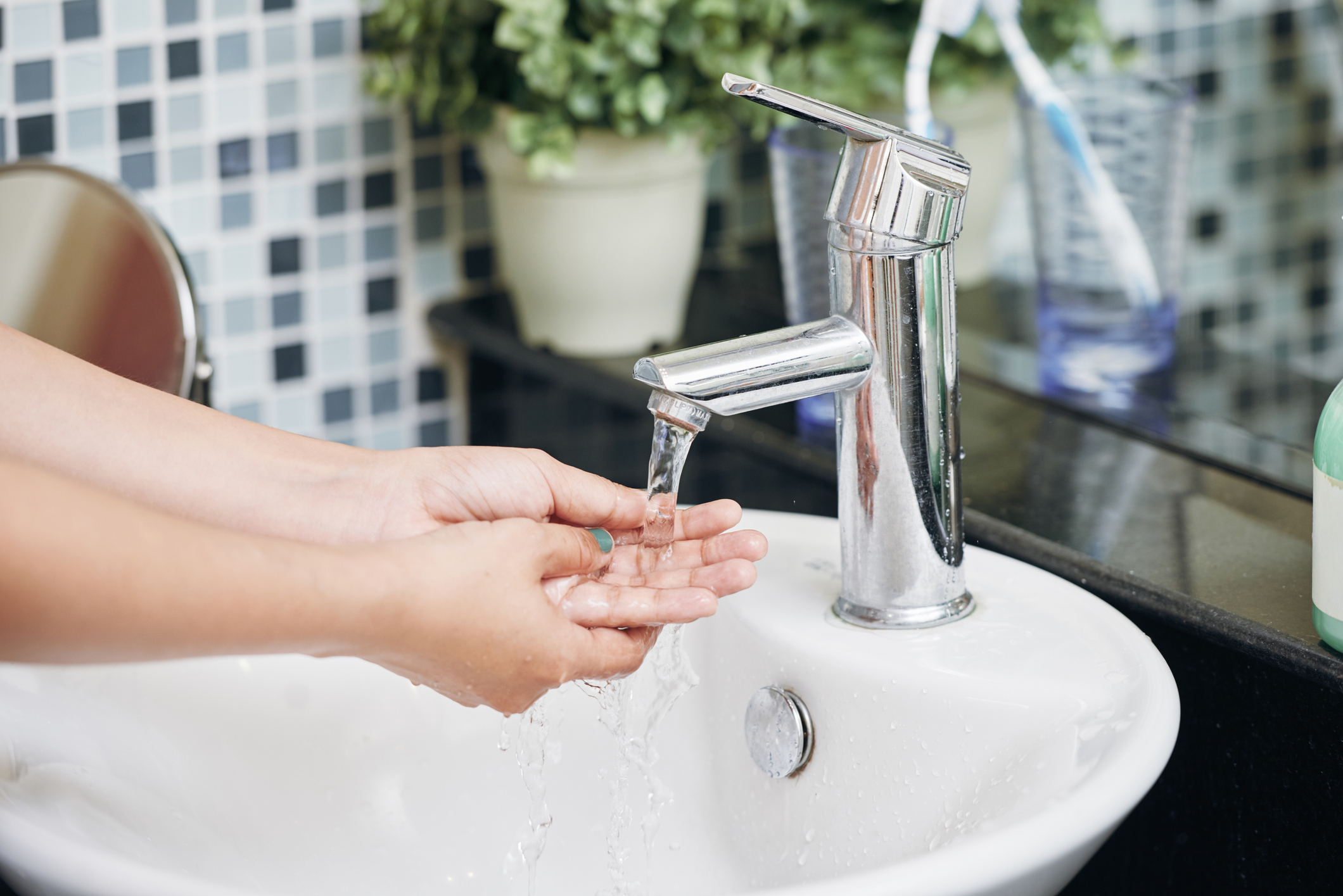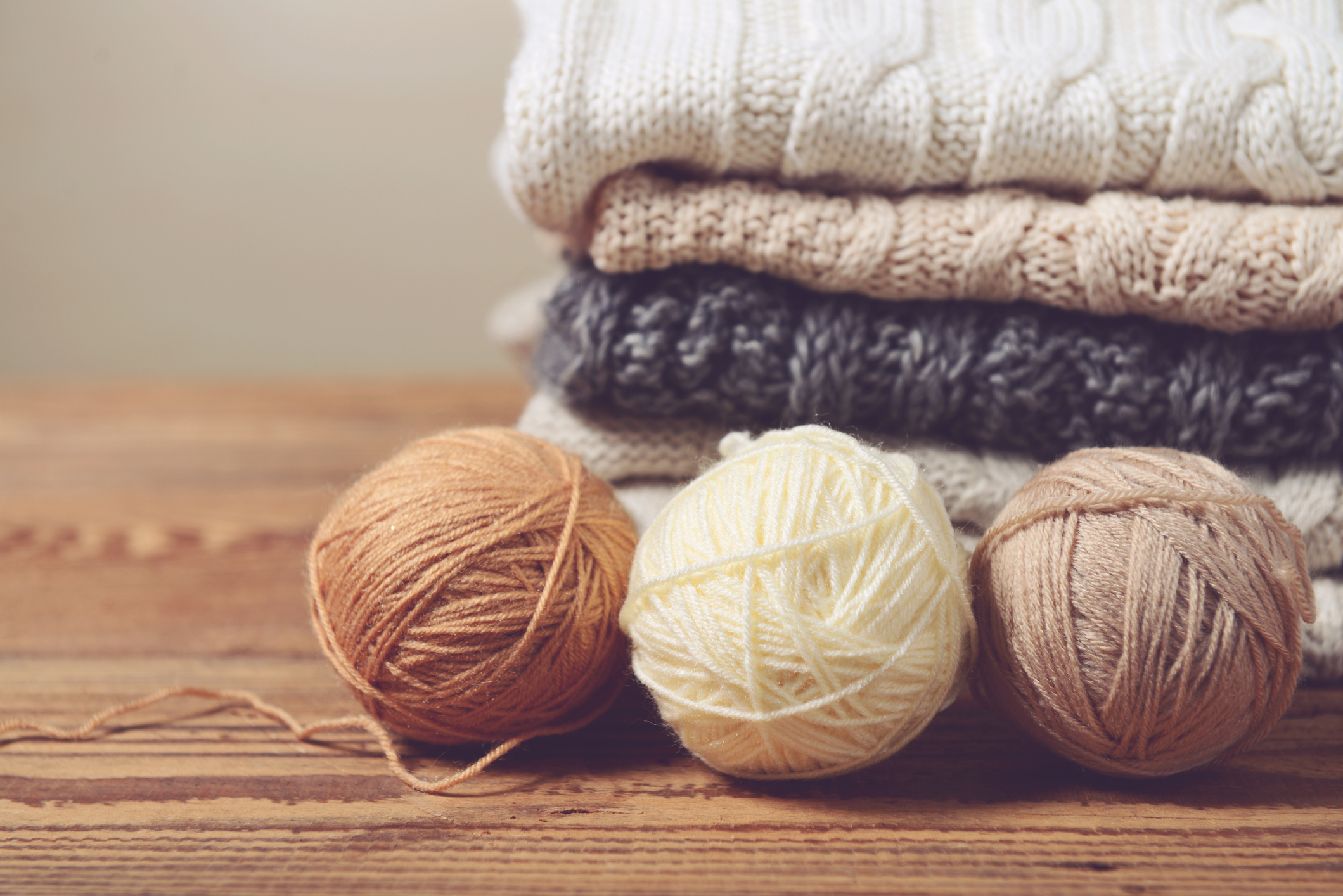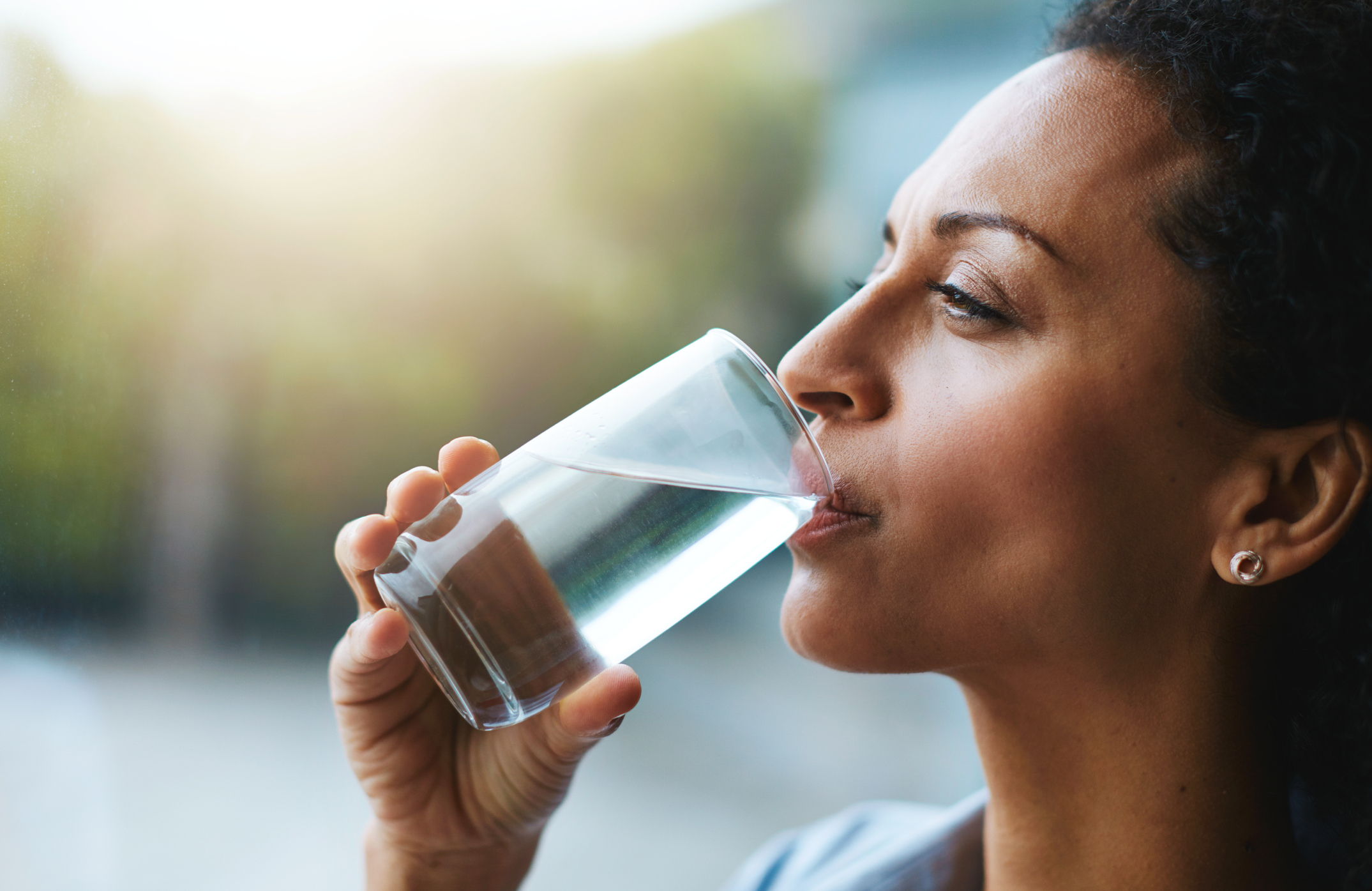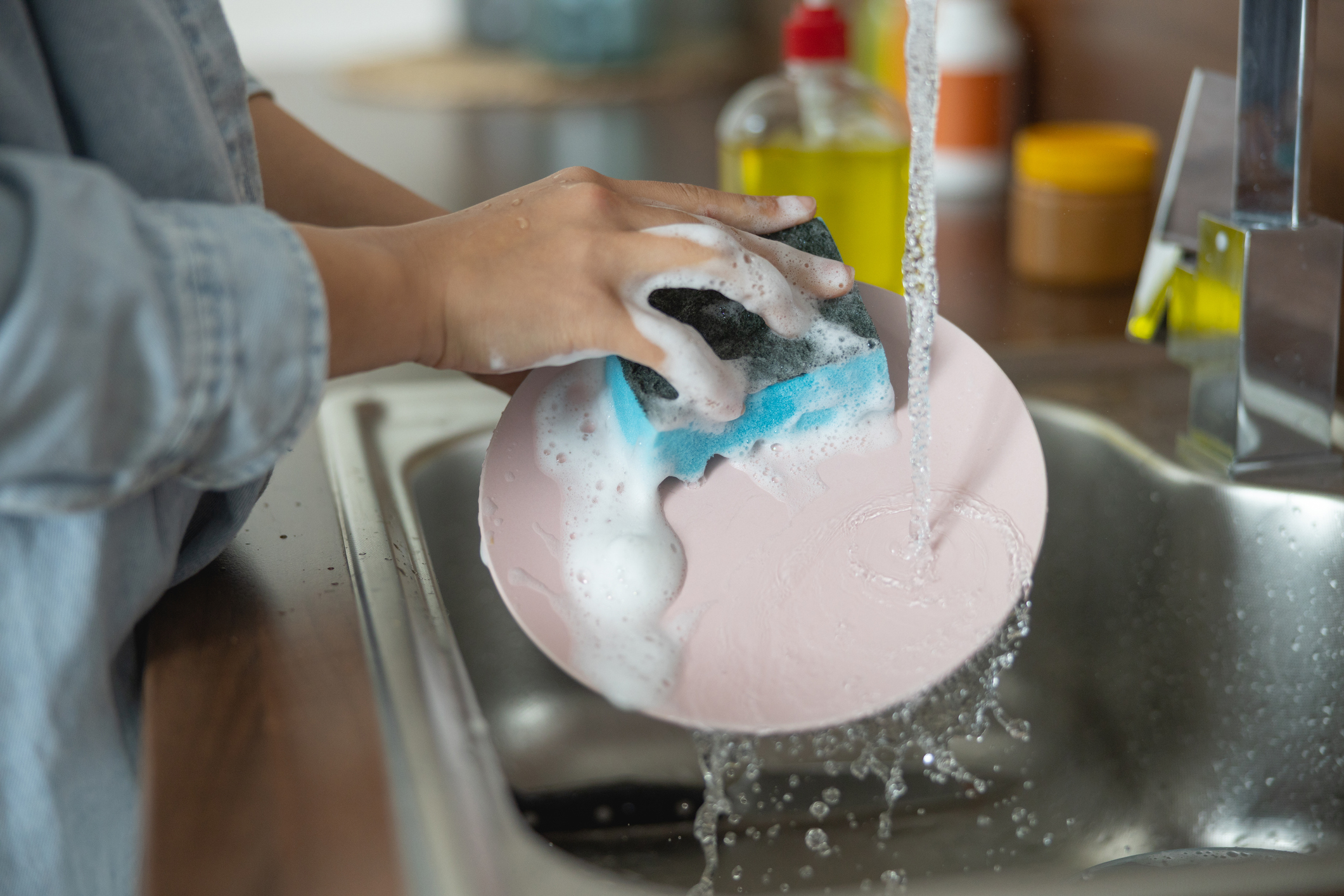Living in a home with hard water can be damaging to your skin, hair, and plumbing. Hard water is water that’s rich in calcium and magnesium. High levels of these minerals can leave behind a filmy residue in your sink, bathtub, and on your body. The more calcium and magnesium that are present in your water, the more film you’ll notice around the house and the harder your water will be.
Hard water is not harmful to your health, but it can be harmful to your home. When groundwater flows through the pipes running under your house, it collects minerals like calcium and magnesium throughout the process. These minerals combine with heat to leave this grimy buildup that can be damaging to appliances, fixtures, and the pipes themselves.
If you read our article on reverse osmosis systems or Envirotec water purifiers, then you’re already well informed on the importance of water treatment systems. If you’re new to water treatment and looking to explore your options to treat your hard water problem, a water softener is a great solution to remove the minerals responsible for hard water through a process called ion-exchange.
The mineral ions that cause the hardness of the water are trapped and collected by a special resin within the treatment system and filtered out in exchange for sodium and potassium ions. A water softener will remove the mineral ions, but it can’t remove heavier bacteria and contaminants such as led, mercury, or iron. So, if you’re looking for cleaner, better-tasting water, we’ve narrowed down the top 5 benefits of a water softener.

1. Healthier Skin and Hair
If you’re used to washing with hard water, you might not realize that your skin can be much softer. If you get out of the shower feeling dry and immediately rush for your moisturizer, or you notice your hair is feeling dull and brittle, this irritation can be the cause of hard water. We think you owe your soap an apology.
Even if you take the time to properly shampoo, condition, and moisturize each night, you can be losing this battle without knowing it. One of the benefits of a water softener is the ability to remove harmful minerals so the flow of water can be gentler and soothing on your skin and hair. The mineral ions found in hard water prevent it from being fully soluble with soaps and shampoos, which causes a buildup of soap scum that can cause your hair to look dull and damaged.
With a water softener, you can enjoy a deeper cleanse and lather because no minerals or damaging chemicals are interfering with the soap particles or natural oils found on your skin and hair.

2. Laundry Feels Softer
The benefit of a water softener goes well beyond the water you bathe in. The water used to clean your clothes is also affected. While you’re doing laundry, a water softener reverses the adverse effects of hard, mineral-filled water on your clothes and preserves the soft-to-the-touch feel.
Do you remember the last time you bought a new sweater and couldn’t get over how fresh it felt? The softness, the smell, the crispness of the material—there's nothing like it. But after a few washes, it stops being as soft and loses its brand-new look. Why is this? It isn’t your laundry detergent or your fabric softener—stiff, lifeless clothing is a direct result of hard water.
Just like your skin and hair, hard water can dry out your fabrics. It can also leave a similar buildup of soap that won’t fully rinse out in the wash cycle, causing your clothes to still look and feel dirty. If your clothes look half-washed and lack softness, a water softener will eliminate this mineral buildup so clothing, towels, and linens can become fresh and healthy again.

3. Freshens Your Drinking Water
If you’ve ever experienced an earthy taste from your drinking water, this can be the cause of hard minerals and harsh metallics occupying your water source. You may fill up a glass and notice a cloudy or murky hue—this is also a sign of hard water.
Everyone has a different taste and preference when it comes to their drinking water. Many people prefer the taste of soft water over hard water because it is free of minerals, fluoride, chloramine, or any other additives that could alter the taste, cleanliness, or crispness of the water.
Whether you know it or not, you may be drinking minerals that you don’t want to be consuming. An added benefit of a water softener allows you to turn on the faucet and enjoy professional-grade, filtered water at home.

4. Gentler on Your Pipes and Appliances
Soft water is soft on everything, your plumbing and appliances included. A water softener makes for a more efficient cleaning process because it reacts more favorably with soap and detergent, increasing the bacteria-fighting power inside your dishwasher or washing machine. The soft water fuses with detergent more thoroughly to prevent soap scum, fully dissolving and penetrating soap so to create a greater lather and cleaning action taking place inside your appliance.
If your home has hard water, you’ve probably experienced how time-consuming and difficult it can be to keep dishes clean. No matter how many times you scrub, your glasses and silverware are still left with a cloudy appearance as soon as they dry. A water softener attacks this problem at the root, removing any pesky minerals before they get the chance to form on your dishware.
Mineral buildup caused by hard water can lead to more frequent repairs of major kitchen and laundry appliances as mentioned above, but it can also cause additional wear and tear on coffee machines, water heaters, and ice makers.

5. Cost-Effective
The health benefits are a major advantage to installing a water softener, but it can also save you money. The same buildup of calcium caused by hard water in your sink or tub also occurs inside your hot water tank. The more buildup there is, the harder the hot water tank has to work. This uses more energy to keep water hot or cold, and in turn, increases your water bill substantially.
Soft water won’t leave any buildup of minerals, decreasing the amount of calcium your hot water tank has to fight against. Mineral congestion inside pipes can also narrow the area where water moves through, which can require a higher pump pressure and costly repairs if something bursts. Soft water uses an efficient amount of every to keep your hot water costs at a minimum.
Signs of Hard Water
Nearly 85 percent of U.S. residents live in a hard water area. It's very common, but prior to recently, most people were not aware of the impact of hard water. As you become more aware, try to notice any of these signs while washing dishes, doing laundry, cleaning the bathroom, or taking a shower:
- Watermarks and residue left behind on faucets or the inside of your dishwasher
- Excessive lime and chalk buildup on sinks and showers
- White clothing appearing dingy or colors fading quickly
- An unusual smell or taste coming from your drinking water
- Dry skin, hair, or itchiness after a shower
- Low water pressure
- Constant appliance maintenance
If you are experiencing any of these issues or concerns, a water softener may be right for you. We recommend the Envirotech Water Softener System (ET64H). The multiple tank design and 64,000-grain capacity will eliminate hard water bleed-through and last five times longer than a discount cabinet softener system.
The Maxflow Valve features excellent service flow rates for better water pressure at your showers and faucets, the Enviroguard (optional upgrade) reduces odor, chlorine, and chloramine in your soft water to retains brilliant color for your hair and clothes, and the Ultrastar High-Temperature Resin is designed for desert climates like ours here in Arizona.
Considerations
While a water softener is a smart investment, there are a few items to consider before making a purchase:
1. The size of your home: The number of rooms and bathrooms will determine how much water is needed to be softened through the system.
2. Installation: Adequate piping will determine the ease of installation. Older homes with outdated pipes and damage caused by hard water may need to be replaced before installation.
3. Periodic servicing: Most systems are automatic and will recharge based on water usage or sensors within the water tank. Some systems may need a manual recharge every quarter, but this particular Envirotech Water Softener System (ET50H) comes with a new efficiency-boosting feature that knows precisely when to regenerate, saving water and salt usage up to 75 percent over conventional water softeners.
Cleaner Water for a Healthier Life
If you still aren’t entirely sure about a water softener for your entire house, you could always start smaller with a reverse osmosis system. This filtration system is a device that is commonly installed under the kitchen sink and uses a high-pressure cleaning system to remove any foreign contaminants, substances, large molecules, and minerals from your water.
You'll later find that a water softener also helps to reduce the buildup inside the membrane of the reverse osmosis system, providing added water protection.
If you’re curious about the benefits of water softeners or have questions about any of our water systems, don’t hesitate to contact our industry experts at Spencer's TV & Appliance. Give us a call, shop our online catalog, or visit one of our 10 store locations today!



